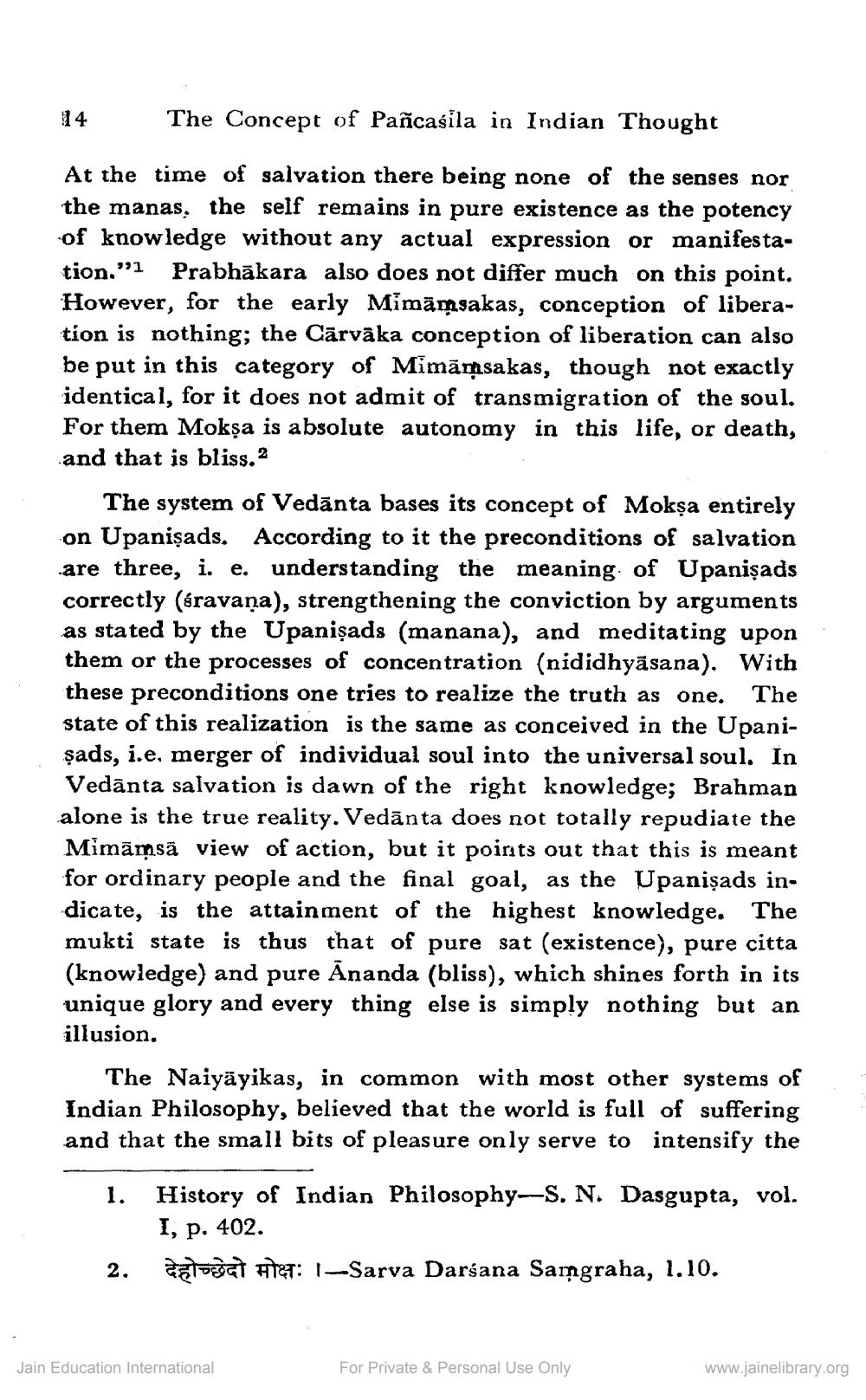________________
14
The Concept of Pancasila in Indian Thought
At the time of salvation there being none of the senses nor the manas, the self remains in pure existence as the potency of knowledge without any actual expression or manifestation."i Prabhākara also does not differ much on this point. However, for the early Mimāmsakas, conception of liberation is nothing; the Cārvāka conception of liberation can also be put in this category of Mimārasakas, though not exactly identical, for it does not admit of transmigration of the soul. For them Mokşa is absolute autonomy in this life, or death, and that is bliss. 2
The system of Vedānta bases its concept of Mokșa entirely on Upanişads. According to it the preconditions of salvation are three, i. e. understanding the meaning of Upanişads correctly (bravaņa), strengthening the conviction by arguments as stated by the Upanişads (manana), and meditating upon them or the processes of concentration (nididhyāsana). With these preconditions one tries to realize the truth as one. The state of this realization is the same as conceived in the Upanişads, i.e. merger of individual soul into the universal soul. In Vedānta salvation is dawn of the right knowledge; Brahman alone is the true reality. Vedānta does not totally repudiate the Mimāmsā view of action, but it points out that this is meant for ordinary people and the final goal, as the Upanişads indicate, is the attainment of the highest knowledge. The mukti state is thus that of pure sat (existence), pure citta (knowledge) and pure Ananda (bliss), which shines forth in its unique glory and every thing else is simply nothing but an illusion.
The Naiyayikas, in common with most other systems of Indian Philosophy, believed that the world is full of suffering and that the small bits of pleasure only serve to intensify the
1. History of Indian Philosophy-S. N. Dasgupta, vol.
I, p. 402. 2. Tal FTGT: 1-Sarva Darśana Samgraha, 1.10.
Jain Education International
For Private & Personal Use Only
www.jainelibrary.org




